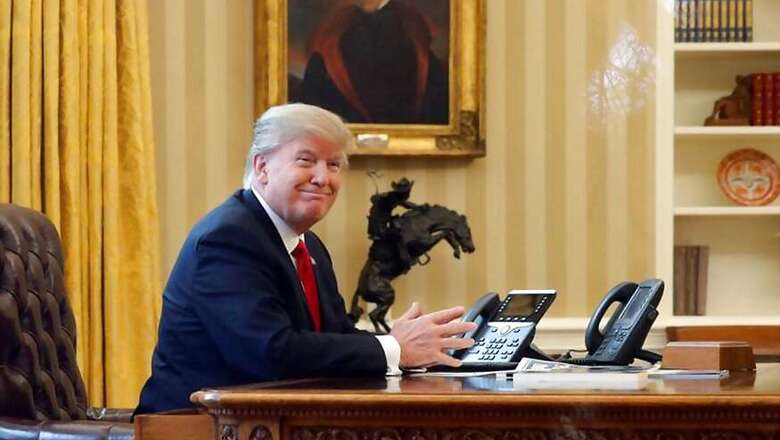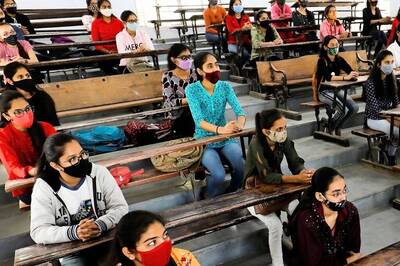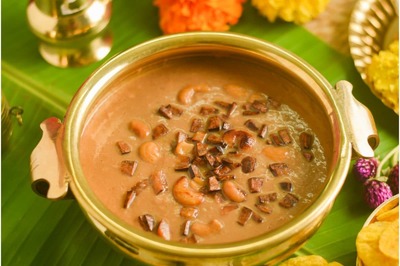
views
Washington: US President Donald Trump sought to seize back political momentum Tuesday by unveiling his pick for the Supreme Court, as he weathered new challenges to his controversial immigration order and saw the confirmation of several key cabinet nominees stall in Congress.
Here are five takeaways from the day's events in Washington:
- Supreme Court -
Trump introduced conservative federal appellate judge Neil Gorsuch as his choice to fill the Supreme Court seat that has been vacant for nearly a year, since the death of conservative Antonin Scalia.
The announcement played out in prime time, complete with teasers delivered in the runup to the 8:00 pm announcement by Trump himself on Twitter.
Gorsuch, 49, is considered to be an "originalist" -- guided in his legal reasoning by what he believes to be the constitution's original intent and meaning. He is the youngest nominee in a generation.
The nine-seat court has been at eight since Scalia died in February 2016, as Republicans refused to set up a confirmation hearing for Barack Obama's pick, Merrick Garland.
- Diplo dissent -
UN Secretary-General Antonio Guterres sharpened his criticism of Trump's ban on travelers from seven mainly-Muslim nations, calling it a "blind" measure more likely to fan extremist propaganda than combat the threat of terrorism.
Guterres warned that countries seeking to strengthen control of their borders cannot do so "based on any form of discrimination related to religion, ethnicity or nationality."
Echoing his stance, a large group of US diplomats from around the world formally opposed the executive order, despite the White House warning that they should get behind his agenda or resign.
"We are better than this ban," they declared, according to leaked drafts of the "dissent memo," scorning Trump's plan to introduce "extreme vetting" for visa applicants as a "high, vague and nebulous bar" for travelers from the seven countries to meet.
- Ban or no ban? -
The debate over Trump's executive order on immigration veered from questions about its merits and effectiveness to pure semantics: when is a ban a ban?
"This is not a Muslim ban. It's not a travel ban/ It's a vetting system to keep America safe. That's it. Plain and simple," White House spokesman Sean Spicer told reporters, complaining that the word "ban" is inappropriate.
One problem: Trump used the very word in a tweet on Monday.
"He is using the word that the media is using," explained an uneasy Spicer.
- None shall pass -
Trump kicked off the day with a combative tweet aimed at Democrats he accuses of obstructing the approval of Jeff Sessions, his nominee for attorney general, and other members of his cabinet.
"They should be ashamed of themselves! No wonder D.C. doesn't work!" Trump wrote.
Senate Democrats gave him little reason to relent as the day went on, blocking committee votes on two key nominations: Treasury secretary nominee Steven Mnuchin and health secretary-designate Tom Price.
The White House rebuke was swift, with Spicer calling the boycott "truly outrageous."
Democrats have dug in over the nominations, alarmed by what they see as extreme picks for a raft of key posts and angered by Trump's aggressive first week in office.
Despite the partisan tensions, one cabinet member managed to win confirmation: Elaine Chao, the next transportation secretary -- and the wife of Senate Majority Leader Mitch McConnell.
- Target: Germany -
Another day, another brash foray into foreign policy.
Top Trump economic advisor Peter Navarro bashed Germany for exploiting an undervalued euro to take advantage of its European neighbors, in a rare public rebuke of a major US trading partner.
Navarro's comments, made in a Financial Times interview, were the latest example of the new US administration's abrasive tactics, with Trump himself using public attacks and Twitter to criticize businesses and allies.
Navarro, who heads the White House's new National Trade Council, told the FT that Germany "continues to exploit other countries in the EU as well as the US with an 'implicit Deutsche mark' that is grossly undervalued."
A hardliner on trade and especially China's rise, Navarro also said the planned trade deal between the United States and European Union -- the Trans-Atlantic Trade and Investment Partnership -- was dead.
He repeated Trump's statements that the administration will pursue bilateral agreements that favor the United States.




















Comments
0 comment